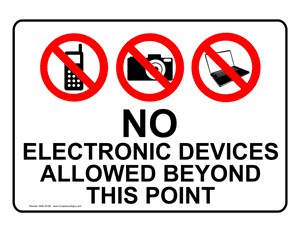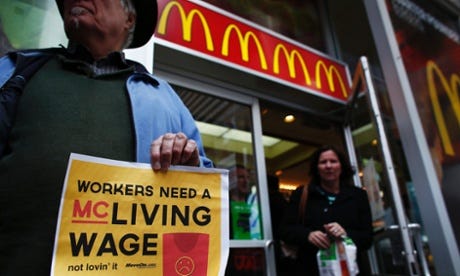So What, Who Cares (vol 1, issue 23): Fake your way to knowledge with this monthly wrap
Hello, dear readers. Because this first month of So What, Who Cares? is indeed the "wildly experimental" phase, I thought it might be useful to see if a monthly recap would be something readers wanted or needed. (Tell me if this is the case, okay?) If nothing else, you can save this and use it to fake your way through current eents conversations, right?
ANYWAY. Have a month's coverage in one go ...
Tech pros are having a hard time valuing the labor of people who don't make apps; this is not going to win any hearts and minds among people who do things like "data janitorial work" or actual janitorial work.

Researchers discovered that most new mothers are still "excessively sleep deprived" after four months. I refer you to what I wrote at the time: "The study appears in the peer-reviewed journal PLoS One, presumably because the managing editor at the Journal of Duuuuh was asleep at her desk."
Meanwhile, U.S. parents are getting hosed coming and going thanks to our stagnating wages and rising childcare costs.
The wage gap between America's high- and low-earners is growing substantially, squeezing the middle class, who are already feeling pressure from the rising costs of three huge factors in class mobility: child care, health care, college tuition. America's increasing wage stratification is also a regional and geographic stratification: Poverty's rising in the 'burbs while coastal cities and older urban regions are becoming high-employment/high-income areas.
People who use a Kindle to read are fuzzier on the narrative order of events in a story that the folks who use a dead-tree book. Related: People who doodle and/or write their own notes are more likely to remember something than people who type their notes.
Younger men are entering the workforce with the (reasonable) expectation that they should have paid parental leave and a career that does not penalize them for taking time to raise a child. Ambitious policymakers can stash this data in the long-term "paid, protected family leave" policy folder. In the meantime, social scientists say that engaged, hands-on husbands/fathers are good news for everyone in the family.

Americans' tendency to overwork is making the quality of their work worse. Also, there's a growing number of digerati who now wax rhapsodic about the benefits of a tech sabbatical.
Coca-Cola's plans for world dominance may be limited by something so basic as a lack of fresh water. Related: the American west is in the middle of a historic "megadrought" and the U.S. Great Lakes are being polluted by the microbeads from fancy face washes.
Fast fashion is something of a financial and environmental nightmare, and it's also remarkably ignorant of basic Nazi iconography. It is also coming to plus sizes, which may actually be what nudges it out of favor with "fashion" types obsessed with hidden race/class markers.
People are willing to pay more for small household appliances when they're shopping for them online.

McDonald's would like you to ignore how its food is made and how (little) its workers are paid, because it is now paying lifestyle bloggers to tell you how awesome it is.
To the shock of nobody, it turns out that farming is hard work. It is also another part of the food chain that is increasingly influenced by the profitable application of big data.
A journalist in India modified the ALS bucket challenge to reflect that country's infrastructure realities, and then some folks got worked up over the Economist's report on why open-air defecation is still a thing on the subcontinent.
You should all be reading the hilarious Dave Holmes and his exegesis of Billboard Top 40 charts.
If you like to worry about the future, consider how most (car-centric) communities don't have the transit or social services infrastructure in place to handle an aged population. In tandem with that: Most pending seniors don't have the savings in place to handle retirement.
The acronym CHAMP can turn you into the kind of person who can tell the future.
It turns out the stories we tell to ourselves about ourselves can bolster our odds of living with the aftermath of a terrible trauma and they can bolster our memories.
*
Thank you so much for reading, and AN EXTRA BIG THANK YOU to those readers who have recommended So What, Who Cares? to their friends via Facebook and Twitter.
You, dear readers, are the most critical component of this little newsletter's success. You can always tell me what's up via email or Twitter. If you really like this newsletter, tell a friend to subscribe.

